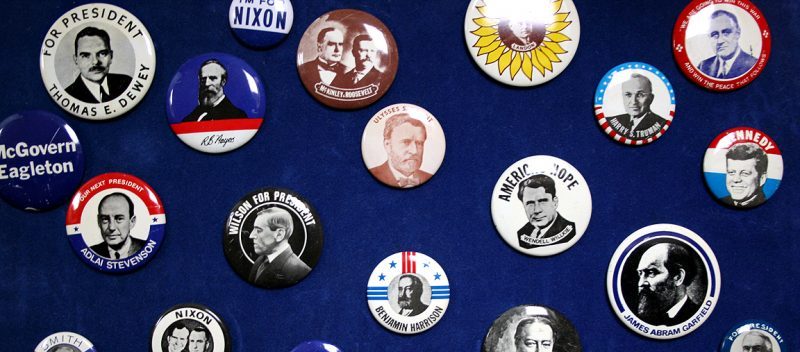Our tagline for GovEvents is “Where Government Gathers.” In the wake of a contentious election and uncertainty around what the new administration will bring, gathering together is more critical than ever. The word “unprecedented” has been used repeatedly throughout the election and now the transition. Knowing that history has a way of repeating itself, we wanted to take a look too see if it is in fact unprecedented.
- The election of 1800 – At this time the Electoral College worked differently than it does today. Each elector voted for two candidates. The one with the most votes became President, the second most votes became Vice President. The race seemed to be between Thomas Jefferson, Democratic Republican and President John Adams, a Federalist. But, when the votes were tallied Jefferson was tied with “running mate” Aaron Burr, another Democratic Republican. For the first of only two times in history, the election went to the House of Representatives. Jefferson was named the winner thanks in great part to the lobbying of Alexander Hamilton (ironically, given the current news the Broadway show bearing his name is making). Hamilton, a Federalist, preferred Jefferson over Burr who he said, “loves nothing but himself–thinks of nothing but his own aggrandizement.” As a result of this election the 12th Amendment was added to the Constitution to specify that electors vote separately for the nation’s two highest offices.
- The election of 1860 – The election that brought us Abraham Lincoln was the lightening rod for the civil war. Lincoln was not even on the ballot in most southern states. Because of this, Lincoln won only 40 percent of the popular vote but took most of the electoral votes in the North, along with California and Oregon. Just weeks after Lincoln’s victory, South Carolina voted to secede from the union.
- The election of 1876 – Still reeling from the civil war, the country was highly divided in its choice for President in 1876. Democratic Governor Samuel Tilden of New York won the popular vote by 250,000 over Republican, Rutherford B. Hayes, but he was short a majority in the electoral college. Races in Florida, Louisiana and South Carolina were too close to call and each side aggressively accused the other of fraud. To bring the election to a resolution, Congress established a 15-member commission of senators, congressmen and Supreme Court justices –seven Republicans, seven Democrats and an independent– to decide the election. Hayes was awarded all 20 electoral votes from the disputed states, giving him the needed 185. Democrats threatened to filibuster and block the official vote counting, resulting in a negotiation that named Hayes the winner with the agreement that he remove all federal troops from the South along with other provisions. This effectively ended Reconstruction and greatly impacted the gains that African Americans had made during the post-Civil War era.
- The election of 1948 – the opposition for Harry Truman came most strongly from within his own party. Truman (the sitting President) saw his commerce secretary quit to run against him on the Progressive Party ticket. Another faction of the Democratic party broke ranks, walking out of the Democratic convention, based on Truman’s support of civil rights. Forming their own party, the States’ Rights Party (also known as “Dixiecrats,”) rallied support behind South Carolina Governor Strom Thurmond. Gallup’s last pre-election poll taken in mid-October, showed Dewey beating Truman by five percentage points and was made public on election day. Truman went to bed election night believing he had lost and was awoken by his Secret Service agents at 4:00 a.m. to tell him he won. The iconic Dewy defeats Truman photo is a testament to the misconception of what the vote would be.
In reading through these recaps we see many parallels to the current election cycle. Perhaps the most important one is that the nation moved forward through each contentious election, peacefully transferred power and our nation, in hindsight, is stronger because of the lessons learned.
This article originally appeared on govevents.com.





Leave a Reply
You must be logged in to post a comment.